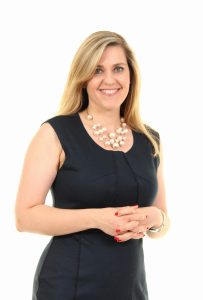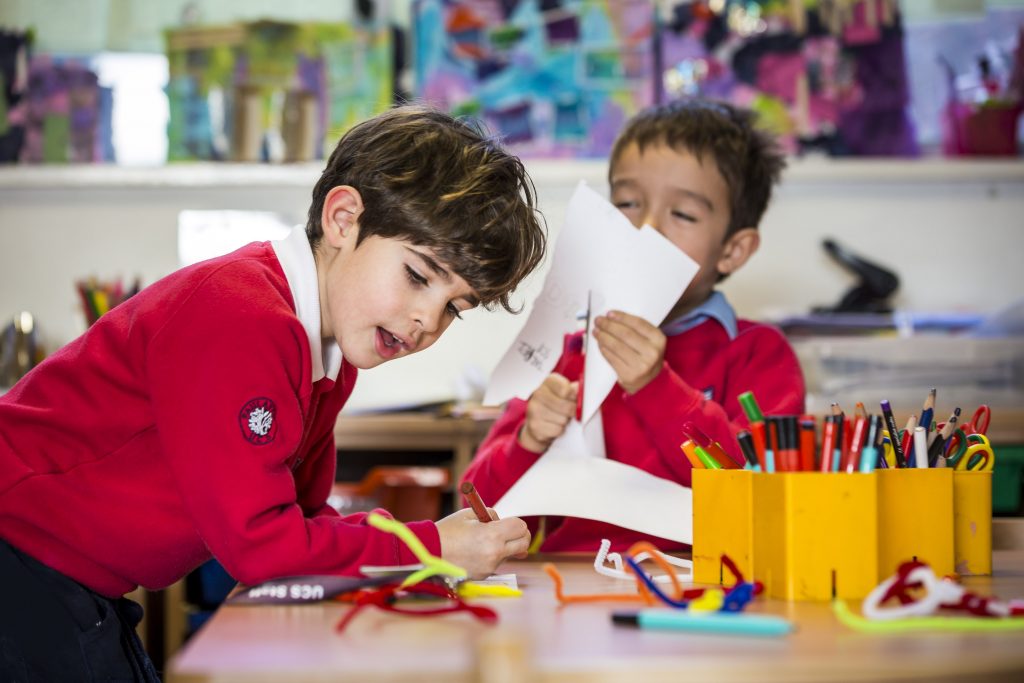 Dr Zoe Dunn has been headmistress of UCS Pre-Prep since Sept. 2015. Prior to that, she founded Rimon, a free school in Golders Green, and taught extensively in both the state and independent sectors.
Dr Zoe Dunn has been headmistress of UCS Pre-Prep since Sept. 2015. Prior to that, she founded Rimon, a free school in Golders Green, and taught extensively in both the state and independent sectors.
What is driving the changes at UCS Pre-Prep?
Up to now we have been a co-ed school with a main entry at 3+ until 7. From Sept. 2018 we will admit only boys at 4+ via a playdate assessment. The changes are due to a combination of the school market outside changing, with more and more girls leaving at 4+, and our closer integration within the UCS Foundation. Because the UCS Junior and Senior Schools are boys’ schools, more boys were applying at the Pre-Prep, so it’s a natural evolution. Losing the nursery provision was a sad impact of single sex but will allow us to revolutionise the school space we have and build a bespoke science/technology/art room. One of our strengths is specialist teaching and that is going to infuse all the way from Reception now.
The 4+ assessments are a big cause of anxiety for parents. Tell us more about the process.
Under the current system we average around 320 applicants for 32 places. Parents should really come on a tour beforehand. They get to meet me and assess whether the school is the right environment for their child and whether it shares their educational ethos. From 2018, it will be a two-stage process. The first stage will take place in a small group. In the second stage we get more personalised time with the child to make sure the match is right. We don’t expect the children to know how to read or write. We want to see how they engage and who they are. They can come from any nursery or home environment. We’re not looking for one type. I know the experience can be stressful (as I have experienced the 2+ with my own child) but I would really encourage parents to see the 4+ process as an opportunity as opposed to something that is done to them. If your child doesn’t get a place, it might be that at that time they’re not quite ready.
Which qualities do you seek to develop in the boys?
We have some key curriculum drivers for their personal development and their social wellbeing that are: resilience, endeavour, intellectual curiosity and also, very importantly, collaboration. We try to make the children be part of a team and learn to work together. I passionately believe in social and emotional maturity and skills. People often call them the soft skills but I would say they’re actually the strong skills. The academic side doesn’t flourish unless you have these qualities embedded. We also aim to enable the children to love learning and be skilled to continue to learn.
Teaching is one of the strengths of the school. What do you look for in your teachers?
I look for people who are passionate, committed, have a deep love for their subject and want to impart learning. I do actually look for that subject specific love because that is what drives deep mastery of a subject. Other teaching strategies naturally come if you have that passion and enthusiasm. You cannot teach passion or enthusiasm and children will soon see it if it’s not real or vibrant. Flexibility, friendliness and personality are also all key.
What does UCS Prep-Prep do differently? What makes you unique?
It’s the passionate teaching and the small nurturing environment. We know all the children and all the families and that’s deliberate. The children are happy and settled and that is powerful at this age. We want to harness their natural curiosity and to make sure they are jolly. You don’t want to suck that out of them in school. They need to have a very positive first impression of learning because they have such long learning journeys ahead of them. You are building the blocks of future learning and embedding in them a confidence in who they are. We are teaching them to name their emotions so that they can regulate them to build inner resilience. Not only will that greatly enhance their academic potential but, most importantly, it will help them become a happy and healthy adult. The work doesn’t end with the 7+, 13+ or university; we take the long view.
We also put a huge amount of importance on the creative curriculum: drama, music and art. What you tend to find at this age is a focus on solely english and maths, with a “let’s get them through the exams” approach. We turn that on its head. We infuse creativity into everything. We’re also hugely proud of our forest school, which takes place on an allotment and helps the boys develop a deeper engagement with nature while building confidence.

Do the children have to be tutored? What’s your view on that?
Sometimes tutoring for a specific need will have a huge impact on all of their skills, social, emotional, confidence so I would never say– and I am not naïve enough to say: please don’t tutor your child. I know North London and it is a parental choice. I think the key thing here is to trust us. If we feel it would be of benefit, then we would suggest it, but it’s only in some cases and it’s certainly not tutoring at 2 and 3 because that’s depressing and doesn’t help. If a child needs to be tutored all the way through, then they get to the school and they stop being tutored and they struggle. It is counterproductive and damaging.
What can parents do to foster wellbeing in their children and make learning easier? What are the things to do at home with them?
Spend as much time as you can with them engaging in family time. I am a working mother, I appreciate that can be a struggle but I mean good quality time with them: sharing stories, visits or physical activity, doing things you enjoy together. Whether it’s going to the museum or building lego towers, just indulging in their natural interest and enjoying each other’s company. School is a busy place for children. They need to play when they come home at this age and recuperate from the day. One of the best things you can give your child, I think, being a mother and a teacher, is a sense of happiness and total security if you can, because that is the bedrock of all good learning. The other most important thing I’m really passionate about is regular and consistent sleep. Sleep will breed you a cleverer child. It’s a massively under-rated thing. Children are doing club after club after club and they have action-packed weekends and I see a lot of yawning and exhausted children.


